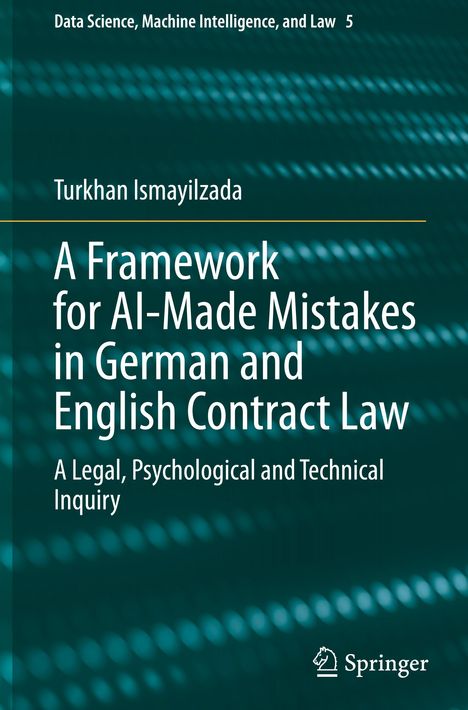Turkhan Ismayilzada: A Framework for AI-Made Mistakes in German and English Contract Law, Gebunden
A Framework for AI-Made Mistakes in German and English Contract Law
- A Legal, Psychological and Technical Inquiry
(soweit verfügbar beim Lieferanten)
- Verlag:
- Springer Nature Switzerland, 06/2024
- Einband:
- Gebunden, HC runder Rücken kaschiert
- Sprache:
- Englisch
- ISBN-13:
- 9783031619984
- Artikelnummer:
- 11901613
- Umfang:
- 224 Seiten
- Nummer der Auflage:
- 2024
- Ausgabe:
- 2024
- Gewicht:
- 506 g
- Maße:
- 241 x 160 mm
- Stärke:
- 18 mm
- Erscheinungstermin:
- 20.6.2024
- Hinweis
-
Achtung: Artikel ist nicht in deutscher Sprache!
Klappentext
This book tries to answer the question ¿What happens if an AI system makes a mistake while contracting?¿ by applying an interdisciplinary and comparative legal methodology. It offers a tantalizing glimpse into the intricate web of legal, psychological, and technical phenomena involved, and how they are interconnected within the realm of contractual mistake doctrine as we know it today.
It covers a wide range of topics, including the common origins of German and English contract law, the pivotal role of intentions as a prerequisite for effectual contracts in both jurisdictions, the classification of and psychological approach to contractual mistakes, and the complexities of AI¿s participation in contract law. Particular attention is paid to the juxtaposition of human- and AI-made mistakes from the perspective of information processing. As a result, the book offers a jurisdiction-agnostic framework for AI-made contractual mistakes that can aid legislators and policymakers in their deliberations on the regulation of AI in contract law. The framework considers cultural and historical differences between German and English contract law, and thus proposes an approach that can fit both (and potentially other similar) jurisdictions with minor adjustments.
In addition to these novel discussions, the work explores the views of prominent scholars and international experts in the field. As such, it will appeal to researchers and scholars in the fields of law, technology, psychology, and (especially) Artificial Intelligence. By presenting ¿a framework for AI-made mistakes in German and English contract law,¿ Dr. Ismayilzada offers a valuable contribution to the field, inviting readers to explore the uncharted territory of AI and the law. Join the author on this intellectual journey and gain insights that will redefine your perception of contracts in the age of AI.


